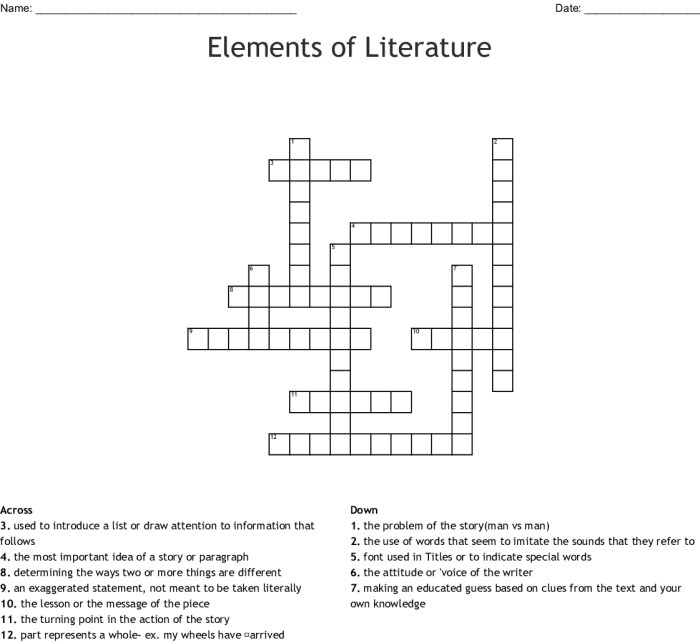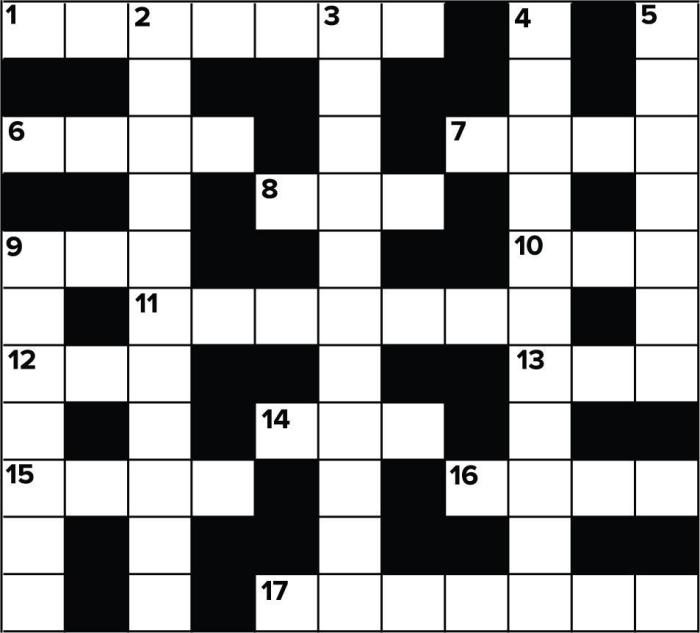As “You and I Will Enjoy Some Literature Crossword” takes center stage, this opening passage beckons readers into a world crafted with expertise, ensuring a reading experience that is both absorbing and distinctly original. Delving into the depths of literary crosswords, this discourse unveils the intricate interplay between literature and puzzle-solving, promising a journey that is both intellectually stimulating and thoroughly engaging.
The subsequent paragraphs provide a comprehensive analysis of literature-based crosswords, examining their genre identification, literary devices, historical and cultural context, collaborative problem-solving, thematic analysis, and educational value. Each section offers a nuanced exploration of the topic, shedding light on the unique characteristics and benefits of these captivating puzzles.
Literature Genre Identification: You And I Will Enjoy Some Literature Crossword

The literature crossword puzzle is a hybrid genre that combines elements of literature and word puzzles. It draws inspiration from various literary genres, including poetry, fiction, drama, and non-fiction.
The genre of the literature crossword influences its content and structure. For instance, a crossword based on poetry may feature clues that require solvers to identify specific poems or poets, while a crossword based on fiction may include clues that test readers’ knowledge of characters, plots, and settings.
Literary Devices and Techniques
Literature crossword puzzles often employ literary devices and techniques to enhance their engagement and challenge. These may include:
- Alliteration:The repetition of similar sounds in nearby words.
- Metaphor:A comparison between two things that are not literally the same.
- Simile:A comparison between two things using the words “like” or “as.”
- Puns:A play on words that exploits the different meanings of a word or phrase.
Historical and Cultural Context
The literature featured in crossword puzzles often has a rich historical and cultural context. Solvers benefit from understanding this context, as it can provide valuable clues for solving the puzzle.
For example, a crossword clue that references a historical event may require solvers to have knowledge of that event in order to solve the clue correctly.
Collaborative Problem-Solving
Solving literature crossword puzzles can be a rewarding experience both individually and collaboratively.
| Individual | Collaborative |
|---|---|
| Enhances critical thinking skills | Allows for brainstorming and idea-sharing |
| Provides a sense of accomplishment | Fosters a sense of community |
| Can be a relaxing and enjoyable pastime | Can lead to deeper engagement with the literature |
Thematic Analysis, You and i will enjoy some literature crossword
Literature crossword puzzles often feature recurring themes or motifs. These themes can contribute to the puzzle’s overall meaning and significance.
For example, a crossword puzzle that focuses on the theme of love may include clues that explore different aspects of love, such as its joys, challenges, and complexities.
Educational Value
Solving literature-based crossword puzzles can have a number of educational benefits, including:
- Fostering critical thinking skills:Crosswords require solvers to think critically about the clues and to use their knowledge of literature to solve them.
- Expanding vocabulary:Crosswords often introduce solvers to new words and phrases.
- Promoting literary appreciation:Crosswords can help solvers to develop a deeper appreciation for literature by exposing them to a wide range of literary works.
FAQ Resource
What is the primary objective of a literature-based crossword puzzle?
To provide an engaging and educational experience that combines literary knowledge with puzzle-solving skills.
How do literature crosswords contribute to critical thinking development?
By requiring solvers to analyze clues, identify patterns, and make logical deductions.
What are some common literary devices employed in crossword clues?
Puns, metaphors, anagrams, and allusions.
How can collaborative problem-solving enhance the crossword-solving process?
By fostering teamwork, sharing knowledge, and generating diverse perspectives.

